News
Ministry of Health collaborates with FAO to launch Dietary Guidelines for Sri Lankans
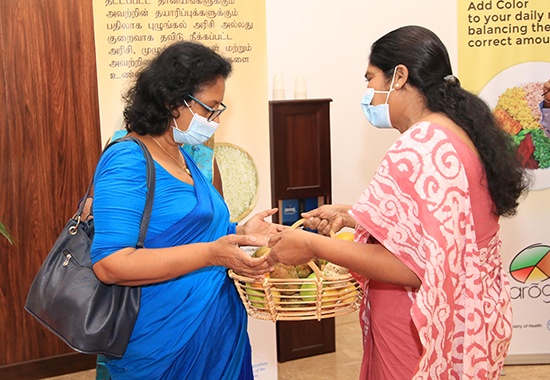
The Ministry of Health, Nutrition and Indigenous Medicine with support from the Food and Agriculture Organization of the United Nations (FAO) launched the Sri Lanka Food-Based Dietary Guidelines (FBDGs) at an event held in Colombo.
Country specific FBDGs are one of the FAO/WHO recommended tools to improve healthy eating habits and lifestyles of individuals and populations. Sri Lanka was one of the countries to endorse the FBDGs in the Framework for Action agreed at the Second International Conference on Nutrition. The Food-Based Dietary Guidelines (also known as dietary guidelines) are intended to establish a basis for public food and nutrition, health and agricultural policies and nutrition education programs to foster healthy eating habits and lifestyles.
 The guidelines provide advice on foods, food groups and dietary patterns to provide the required nutrients to the public to promote overall health and prevent chronic diseases.
The guidelines provide advice on foods, food groups and dietary patterns to provide the required nutrients to the public to promote overall health and prevent chronic diseases.
Sri Lanka first published food-based dietary guidelines in 2002. A revised version was launched in 2011.
“A quick reference guide with the most relevant facts for better nutrition is a public need,” said Dr. Susie Perera, Deputy Director General, Public Health Services of the Ministry of Health.
“A lot of hard work in the form of extensive research and stakeholder consultations went into the development of this guideline. A wide circulation to empower people with these facts are needed. Therefore, the next steps of implementation and dissemination of the dietary guidelines are equally important”, she stressed.
The guidelines were developed by the Nutrition Division of the Ministry of Health, in consultation with various government ministries, universities, nutrition associations and institutes, consumer and non-governmental organizations. Technical and financial support was extended by the FAO. The guidelines are adapted to the country’s nutrition situation, food availability, culinary cultures and eating habits.
“FAO assists Member Countries to develop, revise and implement food-based dietary guidelines and food guides in line with current scientific evidence”, said Dr. Xuebing Sun, FAO Representative for Sri Lanka and the Maldives.
“Sri Lanka is a country that is facing a triple-burden of malnutrition from staggering rates of stunting and wasting among children, micronutrient deficiencies, and overweight and obesity especially among women of reproductive age. The causes of malnutrition are complex and multi-layered, yet diet is one of the single most important contributors to malnutrition. These food-based dietary guidelines can favorably impact diets and the food systems in Sri Lanka, from production to consumption,” he noted.
The revised Sri Lanka Food-Based Dietary Guidelines will be published and be made available to the public on the website of the Nutrition Division of the Ministry of Health.
News
Prime Minister meets delegation from the European External Action Service
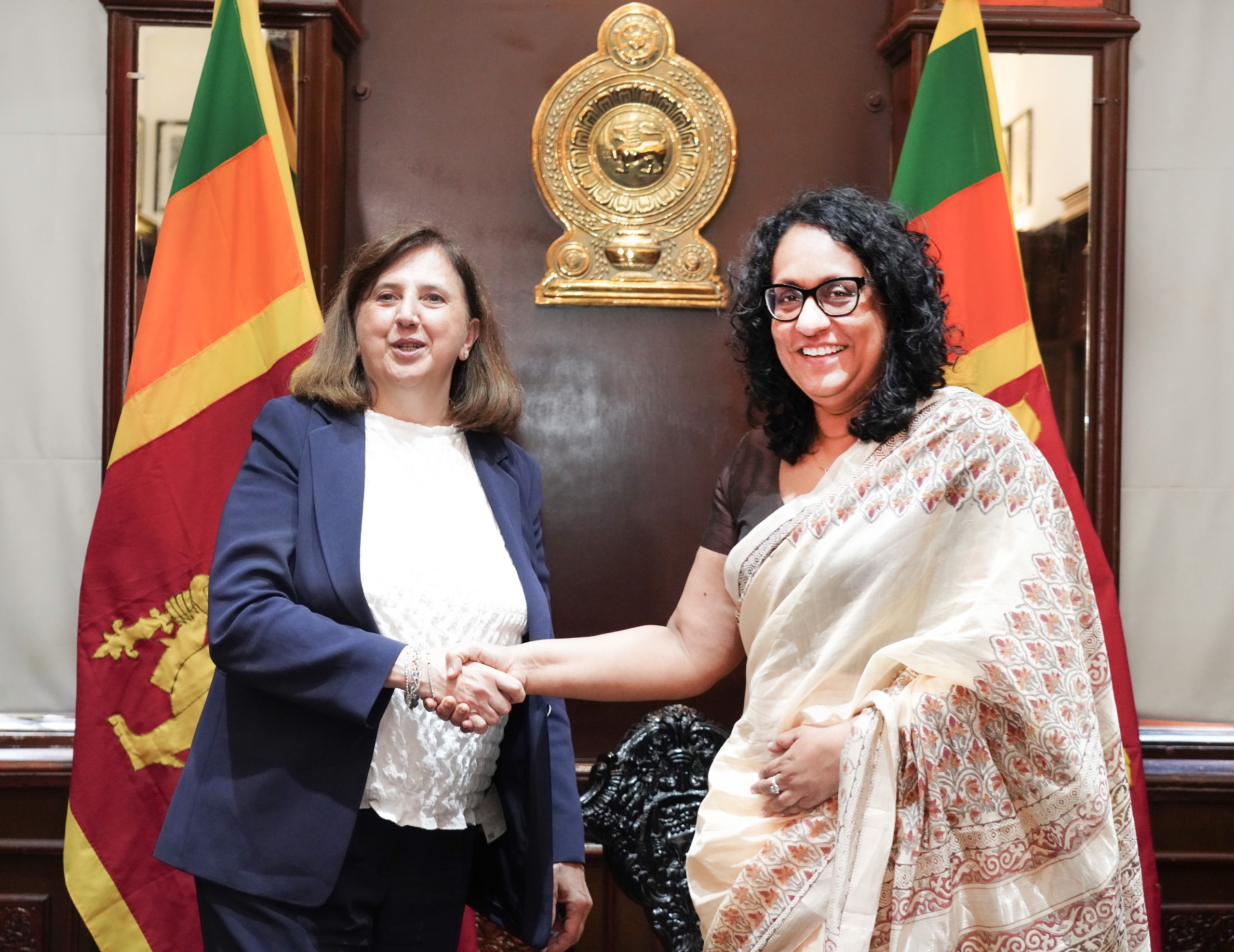
Prime Minister Dr. Harini Amarasuriya met with the representatives of the European External Action Service [EEAS] on Tuesdqy [10 th February] at the Prime Minister’s office.
Welcoming the delegation from the European External Action Service (EEAS), the Prime Minister emphasized the importance of further strengthening and deepening the long-standing partnership between Sri Lanka and the European Union, noting the role of the European Union as a key development and economic partner.
The Prime Minister also expressed appreciation for the timely assistance extended by the European Union to Sri Lanka in response to the recent cyclone, highlighting the EU’s continued solidarity and support during times of need.
Attention was drawn to the need to expand economic cooperation between Sri Lanka and the European Union. The Prime Minister underscored the importance of undertaking necessary legislative and policy reforms to facilitate enhanced economic engagement, trade, and investment.
The delegation was briefed on the ongoing initiatives and reforms being implemented by the new Government aimed at strengthening economic stability, governance, and creating a conducive environment for sustainable growth and international cooperation.
The meeting was attended by the Acting Managing Director for Asia and the Pacific in the European External Action Service, EU co-chair of the Joint Commission, Ms. Paola Pampaloni; EU Ambassador, Head of EU Delegation Ms. Carmen Moreno and the representatives of European External Action Services and Delegation of the European Union, and Additional Secretary to the Prime Minister, Ms. Sagarika Bogahawatta and the officials from the Ministry of Foreign Affairs, Foreign Employment, Tourism Sri Lanka.
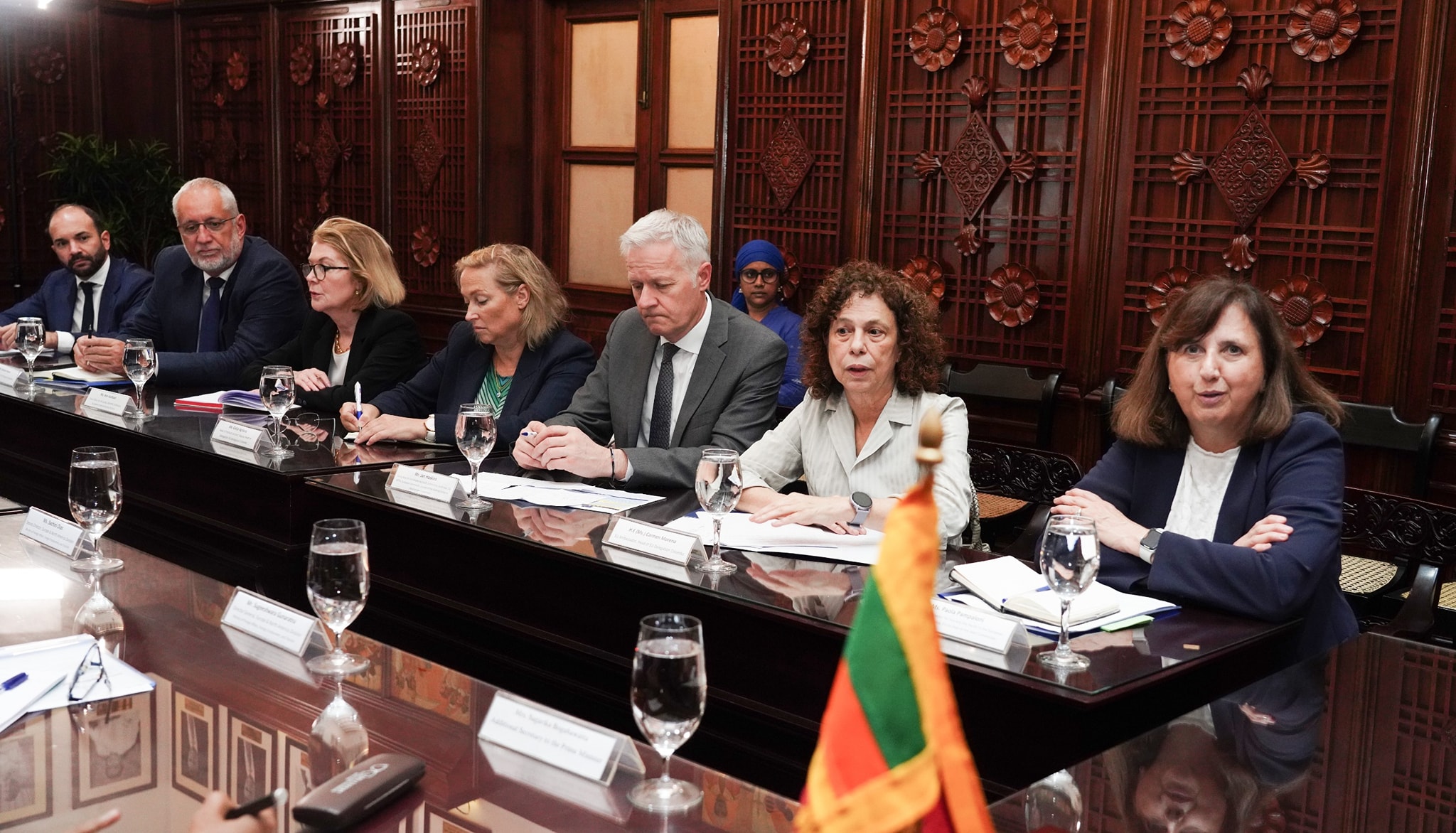
[Prime Minister’s Media Division]
Business
Newly appointed ADB Country Director to Sri Lanka and delegation meet PM
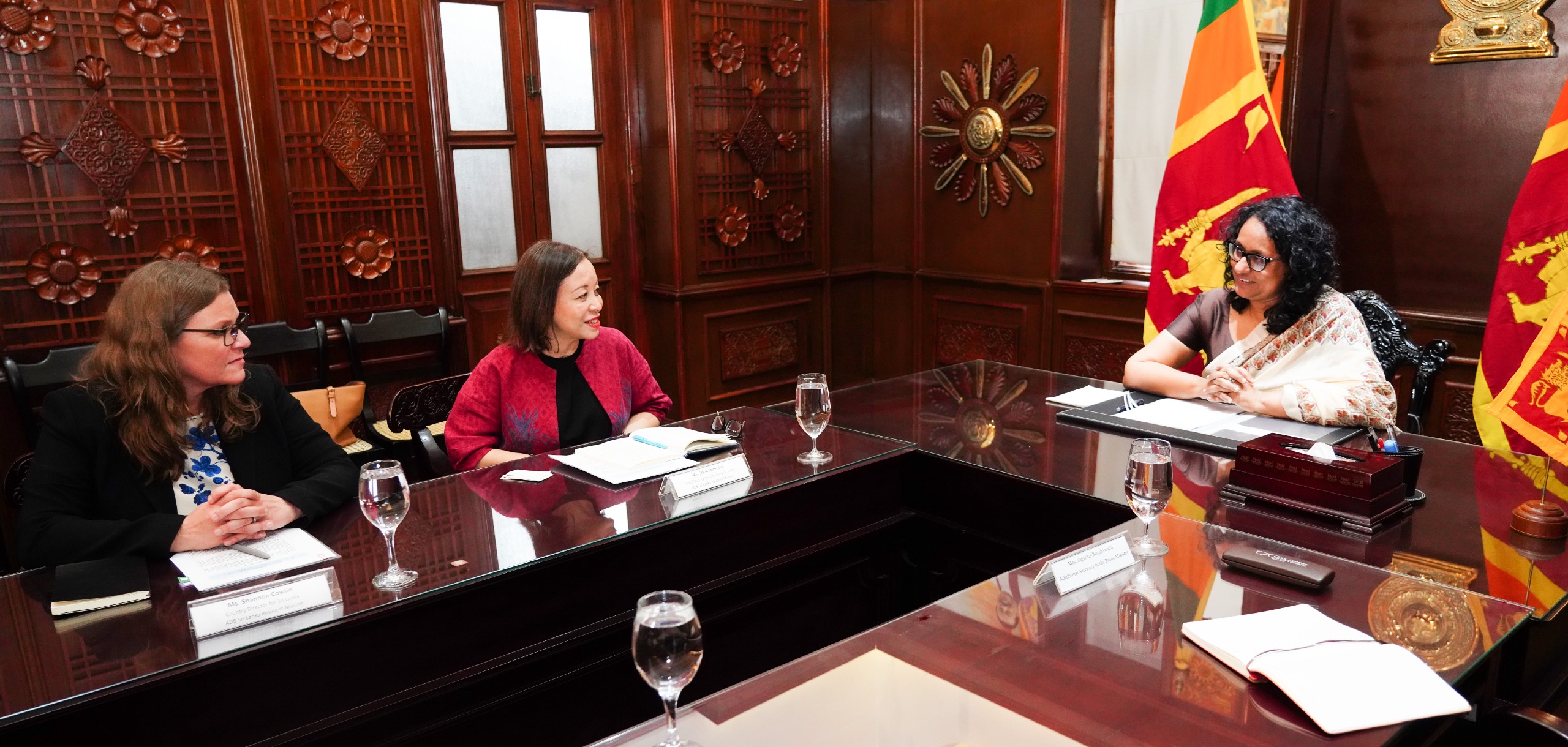
The newly appointed Country Director of the Asian Development Bank for Sri Lanka Ms Shannon Cowlin and the accompanying delegation met with Prime Minister Dr. Harini Amarasuriya on Tuesday [0th of February] at the Prime Minister’s office.
Welcoming the delegation, the Prime Minister extended congratulations to the newly appointed Country Director and acknowledged the long-standing partnership with the Asian Development Bank. The Prime Minister also expressed appreciation for ADB Bank’s continued engagement and support aligned with Sri Lanka’s national development priorities.
The Prime Minister also conveyed gratitude for the timely assistance extended by the ADB in response to Cyclone Ditwah, noting the importance of such support in mitigating the immediate impacts of natural disasters.
The ADB delegation reiterated its readiness to further assist Sri Lanka during the post-cyclone recovery phase, including rebuilding and reconstruction efforts, and emphasized its commitment to the supporting the education sector.
The meeting was attended by OIC / Deputy Director General, SARD Ms. Sona Shrestha, Ms. Cholpon Mambetova Country Operations Head of ADB Sri Lanka Mission Resident, Additional Secretary to the Prime Minister Ms. Sagarika Bogahawatta, Director General of the External Resource Department, Ministry of Finance Samantha Bandara, Director for ADB Division in External Resource Department, Ministry of Finance Ranjith Gurusinghe.
[Prime Minister’s Media Division]
News
School student transport services are being regulated
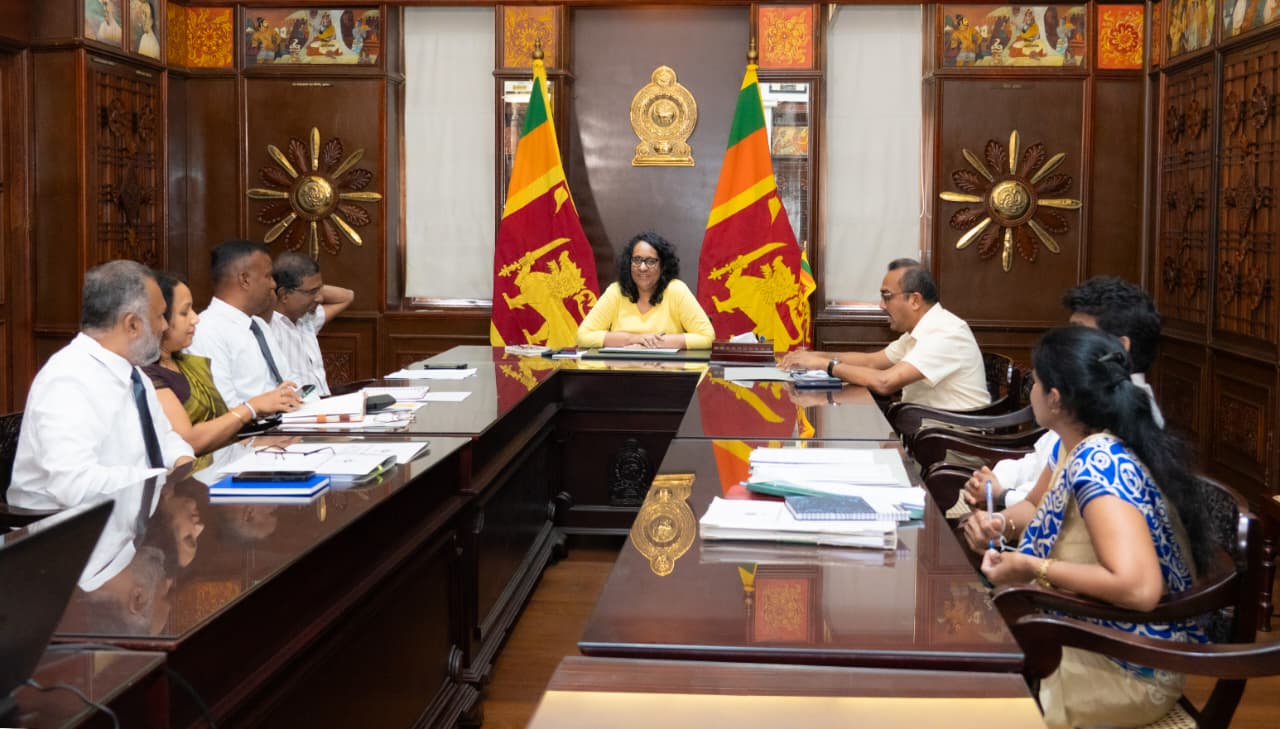
A discussion on regulating school student transport services was held on the 09th of February at the Prime Minister’s Office under the patronage of Prime Minister Dr. Harini Amarasuriya, with the participation of officials from the National Transport Commission and the Ministry of Education.
The authority for regulating school student transport has been vested with the National Transport Commission, and as the relevant draft of regulations have already been prepared, discussions were held on the provisions contained in these drafts as well as on new proposals that should be incorporated.
During the discussion, the attention was focused on meeting the emerging needs of transportation arising from the schools, minimizing issues encountered in the transportation of school students by establishing an organized transport mechanism, and deploying the “Sisu Sariya” school transport service in a more efficient and effective manner followed by the new educational reforms process.
Discussions were also held on introducing laws and regulations to systematize the transportation of schoolchildren, prioritizing child protection by preventing reported incidents of abuse and harassment during student transport, and enhancing professionalism among school transport service providers to ensure a responsible and accountable service.
The focus was also emphasized on the need for coordinated action among the Ministry of Transport, Highways and Urban Development, the National Transport Commission, the Ministry of Education, Higher Education and Vocational Education, and the National Child Protection Authority.
The discussion was attended by the Minister of Transport, Highways and Urban Development Bimal Rathnayake, Chairman of the National Transport Commission P. A. Chandrapala, officials of the National Transport Commission, and the officials from the Ministry of Education, Higher Education and Vocational Education.
[Prime Minister’s Media Division]
-

 Features5 days ago
Features5 days agoMy experience in turning around the Merchant Bank of Sri Lanka (MBSL) – Episode 3
-

 Business6 days ago
Business6 days agoZone24x7 enters 2026 with strong momentum, reinforcing its role as an enterprise AI and automation partner
-

 Business5 days ago
Business5 days agoRemotely conducted Business Forum in Paris attracts reputed French companies
-

 Business5 days ago
Business5 days agoFour runs, a thousand dreams: How a small-town school bowled its way into the record books
-

 Business5 days ago
Business5 days agoComBank and Hayleys Mobility redefine sustainable mobility with flexible leasing solutions
-

 Business2 days ago
Business2 days agoAutodoc 360 relocates to reinforce commitment to premium auto care
-

 Business6 days ago
Business6 days agoHNB recognized among Top 10 Best Employers of 2025 at the EFC National Best Employer Awards
-

 Midweek Review2 days ago
Midweek Review2 days agoA question of national pride













